The world of live-action anime adaptations is a veritable minefield. Love them or hate them, they've always been a hot topic, sharply splitting public opinion right down the middle. Why? Well, often, they deviate so dramatically from their source material that fans find themselves questioning what, exactly, they just watched. Despite this push-pull relationship between fans and filmmakers, it's undeniable that the live-action anime industry is booming. Whether it's movies or TV shows that aim to breathe life into the mesmerizing worlds of anime, new adaptations are steadily rolling out each year. Ready to dive into a conversation that's equal parts enthusiasm and debate? Today, we're spotlighting 6 anime series that are simply screaming for a live-action makeover—whether a television series or a full-length feature film. So, shall we delve into this enticing list?

Afro Samurai
Spanning a compact but gripping 5-episode stretch, "Afro Samurai" delves deep into the tortured psyche of its eponymous hero, Afro. Witnessing the brutal death of his father as a young boy, Afro's life is anything but ordinary. In this bleak, dystopian realm, the might of a swordsman doesn't just determine one's fighting prowess—it literally defines their place in the societal pecking order. And our brooding hero? He's hell-bent on clashing blades with every adversary, all with a singular goal: to face off against the legendary Number 1 swordsman. The series, penned and illustrated by the incredibly talented Takashi Okazaki, was birthed from a mishmash of his adoration for soul, hip-hop, and the American cultural media landscape. At its heart, it's a tale of revenge, with Afro setting his sights on Justice, the man who cold-bloodedly took his father's life. But Justice isn't just any foe—he sports the revered Number 2 headband, making him the only warrior allowed to challenge the wearer of the Number 1 headband. Why does "Afro Samurai" hold so much potential for a live-action rendition? Beyond its punchy, adult-centric narrative and overtones of violence, it dives into profound themes: the anguish of solitude, the weight of remorse, the sting of betrayal, and, of course, the burning fires of vengeance. The animated adaptation was no slouch either, with Samuel L. Jackson lending his voice to Afro and even scooping up an Emmy for its animated brilliance. The futuristic yet oddly feudal Japan presented in the story adds layers of complexity. Rumors whisper of the Number 1 headband's god-like powers—some speak of immortality, others suggest a divine origin. As Afro slashes his way through enemies, bearing the Number 2 headband, he confronts haunting memories, old friends turned rivals, and the tantalizing promise of more powerful headbands. Afro's journey doesn't end there. In "Afro Samurai: Resurrection," new challenges and heart-wrenching confrontations await, leading to a crescendo of blade-on-blade action, shedding light on both Afro's past and his uncertain future. Given its rich tapestry of emotions, action, and a world that feels both unique and eerily familiar, a live-action "Afro Samurai" wouldn't just be cool—it'd be a cinematic spectacle waiting to unfold. The big question is: Who's up for the thrill of bringing this epic to life?
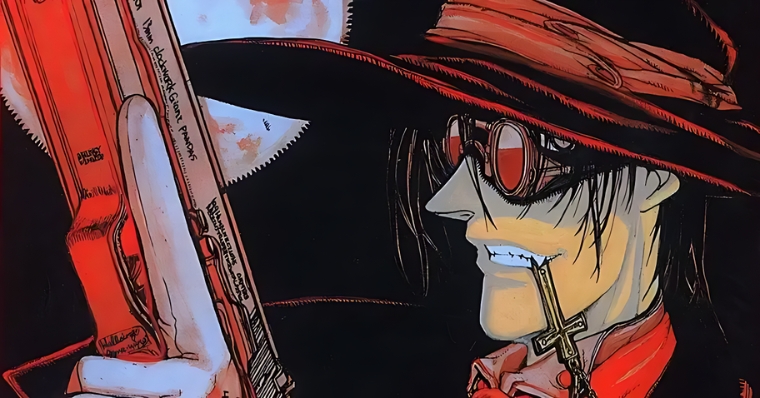
Hellsing
"Hellsing" is an absolute feast for anyone addicted to a world teeming with dark mysteries and insatiable monsters. Crafted from the imaginative mind of Kouta Hirano, this manga series plunges readers into a Britain where things that go bump in the night are far too real. At the helm of keeping these malevolent beings in check is none other than the Hellsing Organization, stewarded by the indomitable Sir Integra Fairbrook Wingates Hellsing. It's not just another secret agency; it's a centuries-old institution laced with traditions and loaded with advanced weaponry, specialized in the hunting and neutralizing of all supernatural menaces. But the real show-stealer here is Alucard - Dracula spelled backward. Alucard isn't your run-of-the-mill, stake-fearing vampire. He's a powerhouse of feral ferocity, a vampiric dynamo who's sworn allegiance to the Hellsing clan. While other organizations might settle for garlic and crucifixes, Hellsing has Alucard to unleash his brand of unholy retribution on otherworldly miscreants. He serves as the fanged fist of the organization, delivering a hefty dose of dark justice and helping Hellsing keep the greater public blissfully unaware of the monsters that lurk in the shadows. The narrative of "Hellsing" isn't just some surface-level spookfest; it's a violent, gritty, and blood-spattered odyssey that runs deep into themes of loyalty, existential dread, and, of course, the blurred lines between monsters and men. The story unfolds like a labyrinth of unexpected turns, fully fleshed-out characters, and plotlines so thick they'd make London fog seem like mere mist. If this tale were ever given the live-action treatment and executed flawlessly, it would not merely be an adaptation; it would be a masterpiece spanning genres from horror to action, with a style so distinct it could only be called sublime. With such an unapologetically dark and gruesome narrative, yet incredibly riveting at every twist and turn, "Hellsing" holds untamed potential for cinematic or series adaptation. This is a narrative that transcends typical classifications, seamlessly fusing elements of horror, action, and pure, exhilarating chaos into something entirely its own. With the right crew and cast, it could genuinely metamorphose from a legendary manga and anime series into an epoch-defining live-action spectacle. For those not in the loop, "Hellsing" was turned into an anime and an OVA series, aptly named "Hellsing Ultimate," which closely mirrored the original manga plotline. And let's not forget the manga's prequel, "Hellsing: The Dawn," which enriches the already robust lore. So, for fans of the grim, the grotesque, and the glorious, "Hellsing" offers a banquet of gothic delights you won't want to miss.
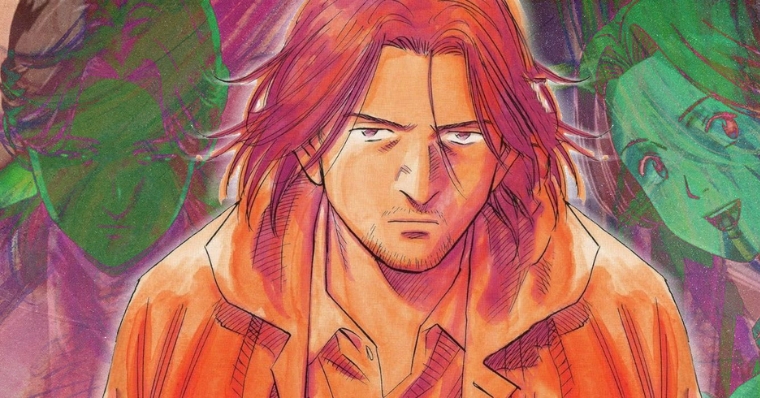
Monster
Let's dive into the intricate web of moral dilemmas and dark alleys that "Monster" lays out for us. Created by the illustrious Naoki Urasawa, this manga doesn't play around when it comes to asking the big questions. It propels us into the life of Dr. Kenzo Tenma, a top-notch Japanese surgeon living the ex-pat dream in Düsseldorf, Germany, circa 1986. So, Dr. Tenma has made it: he's got a cushy gig at a renowned hospital, and even his love life is sailing along relatively smoothly. However, when you dig deeper, you find his internal moral compass grappling with the hospital's corrupt modus operandi. He's a white lab coat guy who believes that all lives are equal—until he discovers that the hospital thinks otherwise, giving preferential treatment based on a patient's social standing. This moral dilemma rocks him to his core and makes him question his own ethical framework. Tenma starts to break away from the chain of command, making choices that jeopardize his gleaming career and cast a long shadow over his personal life. This isn't just a career crisis; it's an existential one. The stakes are as high as they can get. The characters you'll encounter are nothing short of complex and enigmatic. Dr. Tenma is on one side of the coin, while the ever-elusive Johan Liebert is on the other. Johan isn't just any character; he's the human embodiment of existential dread—a psychopathic serial killer who used to be Tenma's patient. Their intertwined destinies set the stage for a narrative replete with suspense, drama, intrigue, and enough plot twists to make your head spin. Think about it: Wouldn't this make an absolutely captivating cinematic experience? It could easily skyrocket as a blockbuster if adopted conscientiously, with attention to every iota of nuance and each earth-shattering plot twist from the original story. It'd be the kind of movie that has you gripping your armrest, eyeing every character with suspicion, and leaving the theater questioning the very fabric of human morality. From brain surgery to soul-searching, from a top hospital in Germany to the dark corridors of human conscience, "Monster" stretches the limits of storytelling in its genre. This is a tale that digs deep, unearthing the gnarliest roots of human nature, and it could be absolutely riveting if brought to the big screen with the respect it deserves.
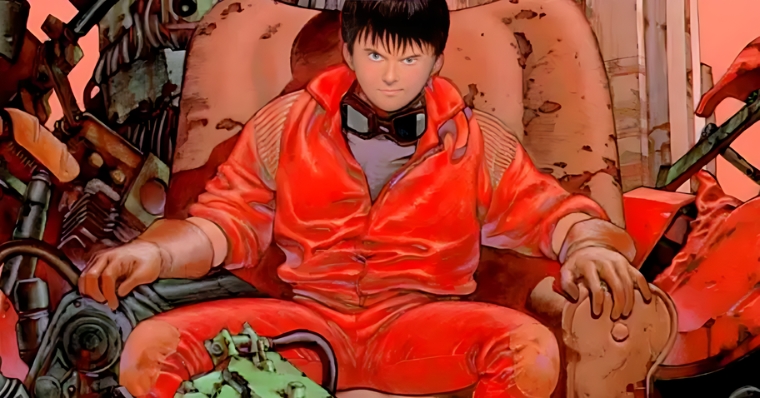
Akira
A cornerstone in the realm of cyberpunk and Eastern science fiction, the narrative unfolds in a post-apocalyptic landscape scarred by the aftermath of World War III. At its core are two rebellious youths, Kaneda and Tetsuo, who are part of a motorcycle gang that roams the hauntingly vibrant streets of Neo Tokyo. Their lives hit an unexpected twist during a high-octane motorcycle race against a rival gang. Tetsuo collides with Takashi, a mysterious child with inexplicable powers. It's soon revealed that this enigmatic child had escaped from a shadowy government lab intent on using him to match the capabilities of the even more elusive Akira. While the anime adaptation of "Akira" was groundbreaking in its own right, it didn't manage to capture the manga's intricate web of plots and subplots. This leaves us pondering: a more faithful adaptation of Katsuhiro Otomo's original manga would command global attention and deliver a storyline with even more gravity and impact than the iconic anime film. And it's worth noting: when we talk about "Akira," we're not just talking about a stellar anime or manga. It's a cultural phenomenon. Its influence has permeated the pores of mainstream pop culture, shaping the creative visions of artists, filmmakers, and musicians alike. The plot is filled with riveting twists and turns that keep the reader on the edge of their seat. Katsuhiro Otomo, the mastermind behind both the manga and the anime adaptation, skillfully crafts a dystopian future where governments are corrupt, societal norms are skewed, and mysterious, almost god-like children hold the key to humanity's destiny. While its cinematic animated counterpart managed to encapsulate this high-octane narrative's essence, there were details, subplots, and background stories that never made it to the big screen. Therefore, when considering "Akira" in all its glory, we must acknowledge that a full-fledged, manga-aligned adaptation would serve as a game-changer for the global audience. It would unveil a richer and more impactful narrative than its animated version. Beyond the borders of Japan, "Akira" smashed preconceptions about animated films, proving that they could be gritty, complex, and aimed at an adult audience. The anime catalyzed the genre's popularity in Western culture, making it a cornerstone in the evolution of modern anime. The magnetic pull of "Akira" has also influenced a string of pop culture icons. Filmmakers like Rian Johnson, known for "The Last Jedi," have cited it as an inspiration, as have the Duffer Brothers, the creative minds behind the hit Netflix series "Stranger Things." In the realm of interactive media, "Akira" has inspired various video games. Taito's 1988 Akira adventure game in Japan, International Computer Entertainment's 1994 Amiga title, and Bandai's "Akira Psycho Ball" for PlayStation 2 are just a few examples. And let's not forget its ripples in the music industry—Michael Jackson and Kanye West have both paid homage to "Akira" in their work. So, if you ever find yourself captivated by the neon hues of a dystopian cityscape or entranced by narratives filled with psychic phenomena, government intrigue, and ethical dilemmas, tip your hat to "Akira." It didn't just join the pantheon of influential works—it helped create it.
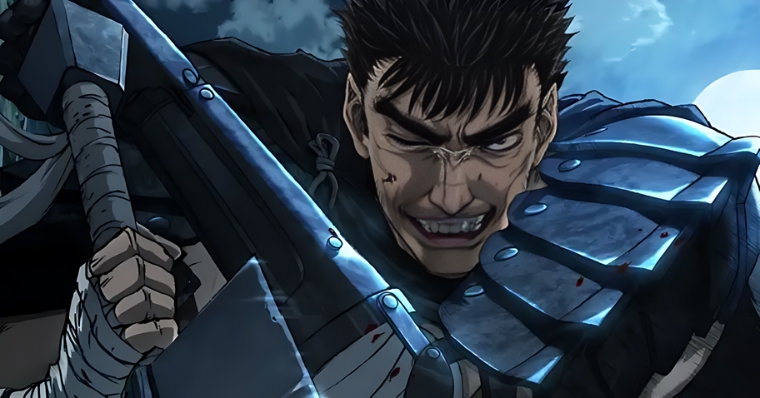
Berserk
In the dimly lit recesses of dark fantasy, Kentaro Miura gave birth to a universe that is as harrowing as it is mesmerizing—welcome to the world of "Berserk." The narrative orbits around Guts, an orphan who didn't just cut his teeth but pretty much got a full dental check-up on the unforgiving battlegrounds. Taken under the wing of mercenaries following the tragic death of his adoptive mother at just 3 years old, Guts has seen his fair share of life's brutalities. And let's just say it's not just the average heartbreak and skinned knees; we're talking about truly soul-crushing, occasionally even spine-chilling experiences that equip him for the worst that fate could throw his way. Intricately crafted, the Berserk universe is saturated with bone-chilling elements—demons, magic, and otherworldly nightmares—that set it apart from any garden-variety fantasy settings. Every frame of Guts' tumultuous life opens a new window into this uniquely bleak cosmos. Despite its ripe potential for an extraordinary live-action adaptation, there's a cloud of doubt over whether such an undertaking could ever materialize. The anime adaptations—both the one from 1997 and the more recent 2016 version—have struggled to encapsulate Miura's sprawling, complex legacy. If you're familiar with the anime, you'll recall it does make a gallant attempt. Following the "Black Swordsman" arc and expanding upon it, the 2016 series dives into the "Conviction" arc, while its second season delves into the initial half of the "Hawk of the Millennium Empire" arc. Although credit is due for capturing some essence of the original manga, both adaptations have arguably failed to pay homage to Miura's creative brilliance fully. Now, about the live-action fantasy: The tale of Guts isn't just some run-of-the-mill sword-and-sorcery affair. Remember, this guy was once part of the Band of the Hawk, led by Griffith, who, after unspeakable betrayals, undergoes a monstrous transformation into one of the God Hand. The event, known as the "Eclipse," marked a low point in loyalty and friendship and had devastating outcomes—like Casca losing her sanity and memory and Guts receiving a cursed mark that makes him a beacon for evil spirits. With comrades like these, who needs enemies, right? The quest for vengeance then becomes the marrow of Guts' existence. Alongside an elf named Puck, he sets out on a dangerous mission, hacking and slashing his way through apostles and demons in a relentless pursuit of Griffith. Years have rolled by, and the wheels set in motion by the God Hand are rapidly reaching a tumultuous climax. So, what would it take for this multidimensional narrative to find its true form in a live-action adaptation? For one, you'd need a filmmaker with the audacity to stay true to Miura's world—warts, gore, and all—while navigating the labyrinthine emotional arcs of its characters. And let's not forget the potential CGI wizardry required to bring the dark fantasy elements to life without it feeling like a video game cutscene. Yet, the skeptics among us might assert that transforming "Berserk" into live-action could lose the story's soul. But consider this counter-argument: the possibility of elevating an already phenomenal tale into a cultural phenomenon. When pulled off with finesse, live-action could offer a gritty, tangible feel that even the most detailed anime or manga panels might struggle to convey. It's a gamble, of course. But if the stars align and the respect for Miura's universe is there, a live-action "Berserk" could honor its creator and elevate the story into a transcendent cinematic experience.
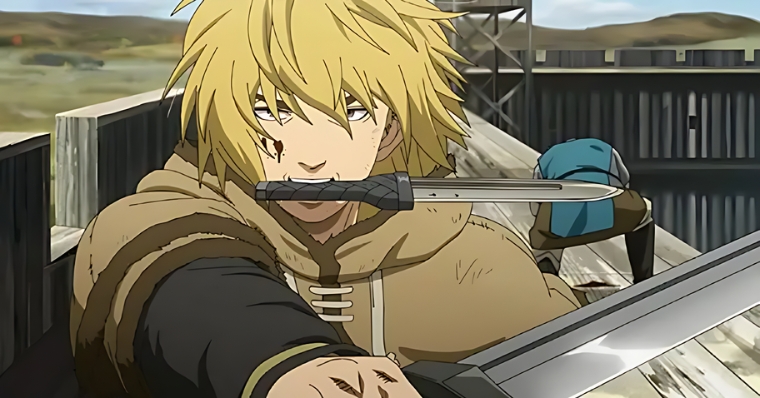
Vinland Saga
Nestled within the anime world, we've got this gem called "Vinland Saga," based on Makoto Yukimura's manga. It's a tale drenched in both brutal reality and the mythic allure of the Viking Age. This saga revolves around a young chap named Thorfinn, who stows away on his dad's ship in a naive spirit of adventure, only to witness the ultimate act of sacrifice—his father giving his life to save him. His dad wasn't just any run-of-the-mill Viking, mind you. Thors was a paragon of strength and leadership, a man of zen-like calm amidst the storm of battlefield fury. In the aftermath of his father's untimely demise, Thorfinn swears retribution on the very man who orchestrated it: Askeladd. And so begins his relentless quest for vengeance, a quest that spans years and digs deep into the soul. Doesn't that sound like something you'd want to see played out in live-action? Especially in a culture as cinematic as the Vikings, which, let's face it, has been adapted to death in various movies and TV shows. Yet, what sets "Vinland Saga" apart is its nuanced, fresh take on Viking culture and history. The anime series itself has been an exceptional adaptation. Produced first by Wit Studio in 2019 and later by MAPPA in 2023, each season focuses on a different chapter in Thorfinn's life. Season 1 paints him as a revenge-driven young warrior, while Season 2 metamorphoses him into a world-weary slave grappling with existential despair. The consistency is noteworthy; director Shūhei Yabuta and writer Hiroshi Seko worked together across both seasons, injecting the adaptation with elements that delve into the complexities of Thorfinn's transformation, his haunting nightmares, and even side characters like Einar. With Amazon Prime and Netflix in on the action, the series has been a hit, praised not just for its gripping portrayals of violence but also for its focus on deep-seated issues like slavery and psychological trauma. Diving into specifics, Season 1 highlights Thorfinn, a youngster from Iceland, eager to emulate his retired warrior father, Thors. All changes when Askeladd's men ambush Thors' ship. Thors loses his life in a life-for-life trade, propelling Thorfinn onto a path of mercenary jobs and rigorous combat training, all to prep for his ultimate showdown with Askeladd. Flash forward to Season 2, and we meet Einar, a farmer who becomes a slave after Vikings slaughter his family. He eventually crosses paths with Thorfinn, also enslaved after the high-tension events of Season 1. They form an unlikely friendship, uniting in their quest for freedom, and the narrative pivots to focus on Thorfinn's internal struggles. Here's the kicker: a live-action "Vinland Saga" adaptation could be a game-changer. Unlike many Viking dramas that rely on hackneyed plots and clichéd portrayals, "Vinland Saga" offers a multifaceted story. The challenge lies in capturing the grit, the layered characters, and the visceral battles that make the anime so compelling, all while paying heed to historical and cultural subtleties. Imagine how much richer the storytelling could be with real-life actors embodying the deeply flawed but relatable characters, especially if the cast and crew are willing to go the extra mile to do justice to Yukimura's masterwork. Would a live-action adaptation be a risky venture? Absolutely. However, if executed with artistic integrity and cinematic flair, it has the potential to transition from being an anime and manga favorite to a full-blown cultural spectacle without sacrificing the story's soul. With the right talent on and off the screen, "Vinland Saga" could find a new, possibly even more poignant, life in live-action, leaving an indelible mark on Viking lore and the broader panorama of storytelling itself.







